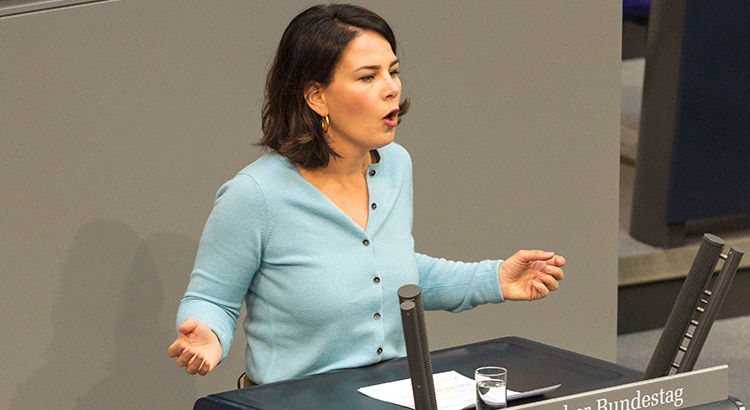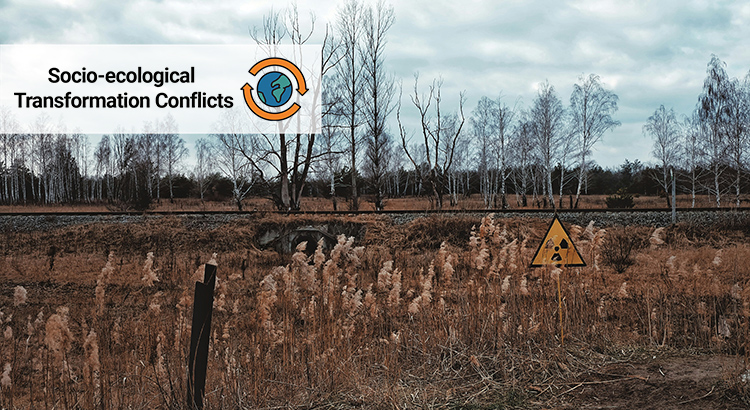Jugendliche stehen in dem Ruf, besonders radikal zu sein. Medial erregt derzeit die Studie „Jugend in Deutschland“ Aufmerksamkeit, in der sich ein Rechtsruck junger Menschen ablesen lässt. Auch die Debatten um „Krawallnächte“, in denen Jugendliche sich zu Hochzeiten der COVID-19 Pandemie eskalative Auseinandersetzungen mit der Polizei lieferten oder Diskurse über Jugendliche, die ins Ausland reisen, um sich der Terrormiliz „Islamischer Staat“ anzuschließen, prägen das Bild einer „radikalen“ Adoleszenz. In diesem Beitrag zeichnen wir eine doppelte Belastung aus den allgemeinen Herausforderungen des Heranwachsens und den spezifischen gesellschaftlichen Spannungen für Jugendliche nach. Wir erläutern, inwieweit sich aus dieser Doppelbelastung Radikalisierungspotenziale ergeben.

Resisting Energy Transition? Understanding Roadblocks in Northern Colombia
La Guajira in northern Colombia has seen a disproportionate number of roadblocks recently, especially connected to wind park construction sites, staged by people demanding that the state implement economic, social, and physical security improvements. This conflict is an example of local impacts of the global energy transition on historically marginalized people. In this Spotlight we argue that La Guajira is a prime case showing how the energy transition is leveraged to indirectly address the state through private companies.
Small Sparks, Big Flames: Why Resolving Local Conflicts Matters for Wider Security – The Case of Bawku Conflict in Ghana.
In the Sahel region, terrorist groups have exploited existing local conflicts to expand their activities and reach. In recent years, countries especially in coastal West Africa, have experienced terrorist activities in their territories. While Ghana has been resilient against terrorist attacks on its soil, the country continues to grapple with enduring ethnic conflicts, among them the Mamprusi and Kusai conflict in Bawku. In this blog post I argue that the Bawku conflict has persisted over an extensive period, and if left unresolved, could potentially open the door for extremist exploitation and infiltration, signaling a troubling extension of Sahel terrorist activities.
Der militärische Einsatz künstlicher Intelligenz braucht Regeln: Nur welche, darüber besteht keine Einigkeit
Der Einsatz Künstlicher Intelligenz ist nicht auf zivile Zwecke begrenzt. Die Kriege in der Ukraine und in Gaza zeigen, wie umfassend KI bereits aktiv von militärischen Akteuren eingesetzt und getestet werden. Diese Entwicklung wirft jedoch erhebliche völkerrechtliche Fragen zum Einsatz solcher Systeme auf: Wie können maschinelle Entscheidungen kontrolliert und für eine Zuschreibung von Verantwortung nachvollzogen werden? Welche Rolle spielt der Mensch in diesen Prozessen? Dieser Blog diskutiert internationale Regulierungsinitiativen, die in der EU und den Vereinten Nationen im vergangenen Jahr angestoßen wurden.
Time for True Stories: Stereotypes Absolve Gendered Violence against Indigenous in Canada
Across North America, May 5 is a day to commemorate the thousands of missing and murdered Indigenous women, girls, two-spirit, and gender diverse people. Beyond giving space for remembrance and mourning, May 5 is connected to the aims of building knowledge, raising public awareness, stimulating solidarity and underlining the need for action to end the disproportionate deadly violence. While politics and the judicial system are reminded on this day to deliver rights and justice, another important factor for change should also gain attention: the collective imagery of the Indigenous needs to be decolonized to transform the systemic structures of violence.
Segmentierung des Cyberspace? Chinas und Russlands Decoupling-Bestrebungen und ihre Konsequenzen
Seit einigen Jahren zeichnet sich ein besorgniserregender Trend ab: Autoritär geprägte Staaten entkoppeln sich zunehmend von den globalen Internet-Infrastrukturen durch den Aufbau eigener IT-Systeme und -Infrastrukturen. Mittelfristig könnte diese Entwicklung zu einer Aufteilung des Cyberspace in unabhängig voneinander funktionierende Teile führen. Eine solche Segmentierung kann Bestandteil strategisch-außenpolitischer Interessensdurchsetzung sein. Damit wird die ohnehin brüchige Stabilität des Cyberraums nachhaltig untergraben und das Risiko schwerwiegender Cyberattacken erhöht.
Rhetorik, die überzeugt? „Historische Lehren“ in der deutschen Debatte über den Ukrainekrieg
Während die Ukraine seit dem 24. Februar 2022 ihr Land gegen die russischen Invasoren verteidigen muss, ringen die Deutschen – wieder einmal – um ihre eigene Vergangenheit. Auffällig an der Debatte ist, dass ein und dieselbe historische Phase, nämlich die Jahre 1939 bis 1945, zur moralischen Rechtfertigung unterschiedlicher Handlungen herangezogen wird. Dieser Blog problematisiert, wie die NS-Vergangenheit im politischen Diskurs rhetorisch mit dem Ziel der Überzeugung eingesetzt wird.
A Green Recovery for Ukraine: How to Avoid the Trap of Green Colonialism?
The environment is not a silent victim in Russia’s war against Ukraine; the long-term threats for the people of Ukraine are already visible. The environmental dimension of the war has been documented from early on. In this respect, the war is a model for future military conflicts. President Zelenskyy emphasized in his peace plan that green reconstruction is an essential element for a just and sustainable future. Green reconstruction, as every reconstruction, needs international support and local engagement. In this blog post, we identify the conditions that must be met to ensure that local groups are empowered and new international dependencies are avoided.
The Philippine National Police: Finally Putting Limits to Police Use of Deadly Force?
On March 22, 2024, Davao City mayor Sebastian Duterte declared that “Davao City is at war against drugs.” In the following days, seven suspects were killed in police anti-drug operations. However, shortly thereafter the mayor’s call to arms was met with resistance from the police. Several police officers were relieved of their duties and the PNP-chief declared that “there is no need for a drug war.” Is the Philippine National Police finally taking on its dismal record on the use of deadly force?
A Gap between Social and Ecological Rights: A Commentary after One Year of the German Supply Chain Due Diligence Act
Frequent violations of human, labor, and environmental rights continue to impact supply chains globally, with notable prevalence in the Global South, but also in the Global North. The German Supply Chain Due Diligence Act (SCDDA, in German: Lieferkettensorgfaltspflichtengesetz [LkSG]), enacted in 2023, represents significant progress in upholding rights within the context of socio-ecological transformation across value chains. However, the law faces challenges, particularly in terms of its prospective enforcement and the absence of a cohesive link between social and ecological rights. This article provides a commentary and argues that addressing these issues should be a priority.









